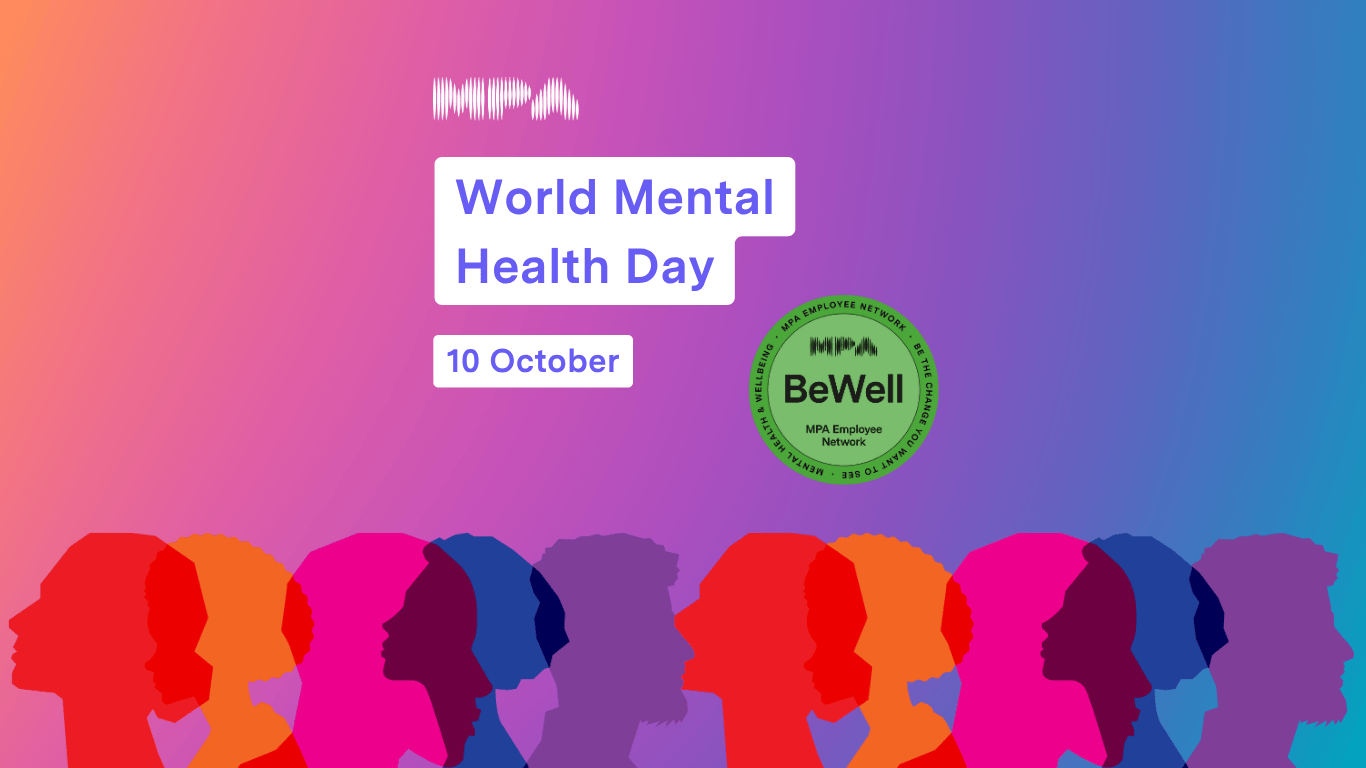Observing World Mental Health Day

Date
By valuing mental health as much as artistic output, the industry can ensure talent not only survives but thrives.
World Mental Health Day is observed every year on 10 October. First established in 1992 by the World Federation for Mental Health, the day was created to raise awareness of mental health issues around the globe and to mobilise efforts in support of mental wellbeing. Over time, it has become a vital opportunity to challenge stigma, promote understanding, and remind us that mental health is as important as physical health.
The 2025 theme, “It is Time to Prioritise Mental Health in the Workplace,” calls on organisations everywhere to move beyond awareness and make mental wellbeing a core part of how we work. This year is a rallying cry to create cultures where people feel safe, supported, and able to thrive, not just on World Mental Health Day, but every day.
Understanding Mental Health
Mental health challenges are more prevalent than ever. According to the World Health Organisation (WHO), over 1 billion people worldwide are living with mental health disorders, including anxiety and depression the most common conditions. These conditions can significantly impact physical health, relationships, and overall well-being.
Despite their prevalence, mental health issues often remain invisible, and stigma continues to hinder access to care. In fact, depression and anxiety alone result in the loss of approximately 12 billion workdays each year, costing the global economy around £1 trillion annually.
World Mental Health Day, observed annually on October 10, serves as a crucial reminder that mental health is a universal human right. It provides an opportunity to:
- Recognise that mental health fluctuates for everyone.
- Promote understanding and compassion.
- Advocate for equitable access to support, treatment, and workplace adjustments.
- Encourage open, stigma-free conversations.
As we celebrate World Mental Health Day 2025, let’s commit to breaking down barriers and fostering an environment where mental health is prioritised and supported for all.
How We Can Support This October and Beyond
Supporting mental health goes beyond a single day. Here are practical ways to take action this month:
- Listen and Learn
Engage with mental health stories and resources whether through books, podcasts, webinars or lived experience speakers.
- Check In With Others
A simple, “How are you, really?” can open a safe space for conversation.
- Normalise Conversation
Challenge the culture of silence by sharing your own experiences if you feel able, or showing active allyship when others share theirs.
- Educate Yourself
Understand the signs of poor mental health and the ways you can support colleagues, friends, or family in accessing help. Perhaps offering Mental Health First Aid Training for Managers.
- Support Services and Campaigns
Donate to or volunteer with mental health charities and initiatives that drive systemic change.
Mental Health in the Workplace
This year’s theme highlights that workplaces must take a leading role in changing attitudes, providing resources, and embedding mental health into organisational priorities. Key actions include:
- Promote Psychological Safety: Create spaces where employees can speak openly without fear of stigma or professional impact.
- Flexible Working Options: Where possible, offer flexible hours or remote working as part of wellbeing strategies.
- Employee Networks: Support wellbeing and mental health groups that provide community and peer-to-peer support.
- Training and Awareness: Include mental health education in leadership and employee development programmes.
- Access to Support: Provide clear pathways to Employee Assistance Programmes (EAPs), counselling, or external resources.
Mental Health and the Music Industry
The music industry is both a source of joy and a place of intense pressure. Touring schedules, financial uncertainty, performance anxiety and the weight of public scrutiny can all impact mental health. High-profile conversations from artists have begun to break the silence, but much more can be done to ensure the industry prioritises wellbeing.
Many musicians have been brave and vocal about their own mental health journeys, helping to shift attitudes across the industry:
- Billie Eilish has spoken openly about depression and body image pressures, using her platform to promote authenticity and self-acceptance.
- Lewis Capaldi has raised awareness of anxiety and Tourette’s syndrome, particularly through his 2023 documentary How I’m Feeling Now.
- Adele has shared her experiences with postnatal depression and anxiety, highlighting that vulnerability can exist alongside success.
- Stormzy has used interviews and music to discuss his battles with depression, sparking conversation about mental health in Black British communities.
- Selena Gomez’s documentary My Mind & Me provides an honest account of bipolar disorder and the impact of fame on mental well-being.
These voices underline an essential truth: mental health challenges do not discriminate; they affect people at every stage of their careers.
Key priorities for a mentally healthier music industry include:
- Safe Spaces and Support: Accessible wellbeing services for artists and professionals, on and off stage.
- Breaking Stigma: Open dialogue from all levels, from management to artists to reduce shame and fear.
- Work-Life Balance: Sustainable approaches to touring and studio work, with rest treated as an essential part of creativity.
- Mentorship and Peer Support: Programmes that offer guidance and a safe place to discuss pressures specific to the music business.
By valuing mental health as much as artistic output, the industry can ensure talent not only survives but thrives.
Resources
https://www.helpmusicians.org.uk/
For more information or to join our BeWell Employee Network, please contact:
Helen Choudhury
Head of DEI, CSR and Wellbeing
[email protected]
Safiyah Olaide
DEI, CSR and Wellness Officer
[email protected]
Share article